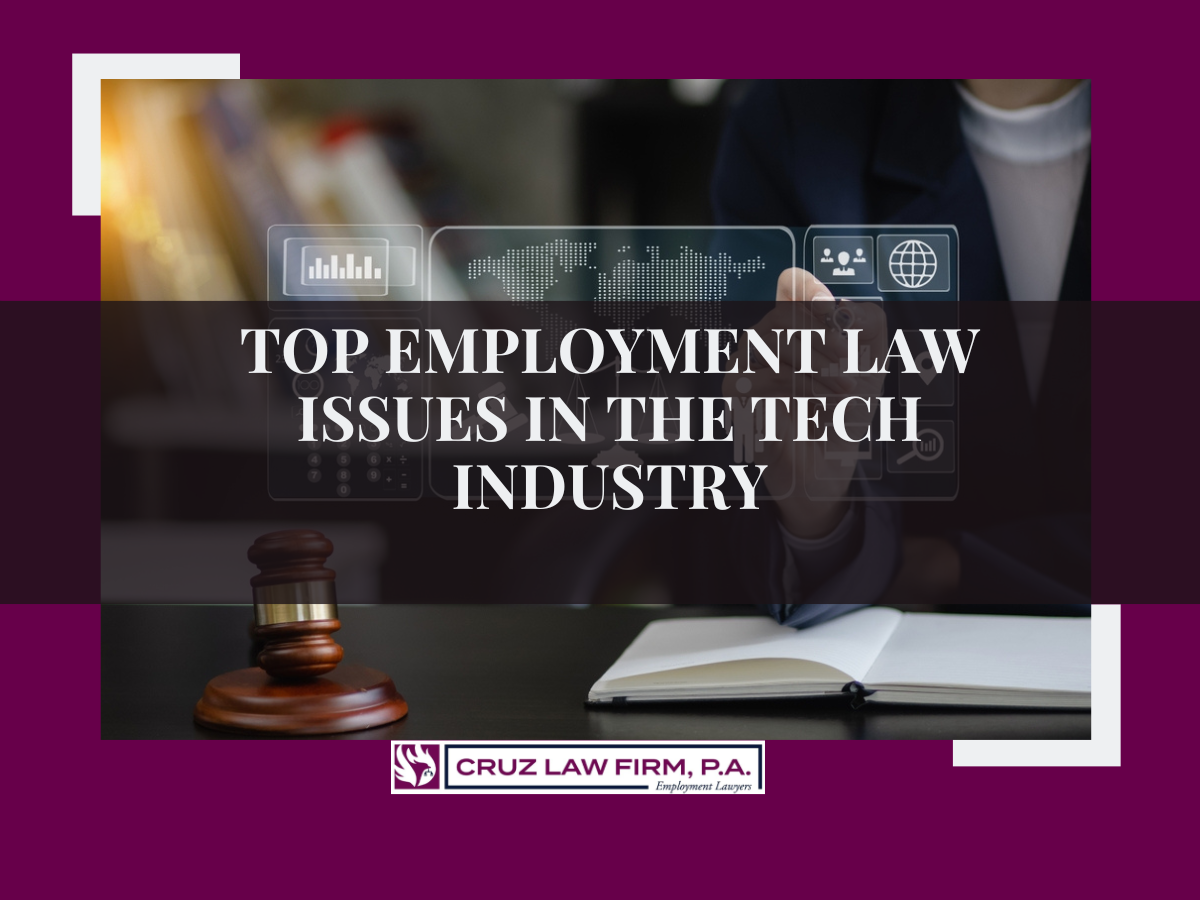
The rapidly developing nature of the tech industry means that companies and workers in this sector face an ever-changing array of employment law issues. In recent years, some of the common employment law issues to emerge for tech companies and workers include:
- Employee classifications for employees vs. contractors or exempt vs. non-exempt workers
- Workplace harassment and discrimination claims
- Employee data privacy and protection
- The effect of disruptive technologies such as artificial intelligence
- Unionization drives
Understanding the primary legal issues impacting employees in the industry can help them recognize when potential problems arise in their workplace. They can then take appropriate action, such as reaching out to legal counsel to discuss their rights under state and federal employment laws.
Employee Classification: Contractors vs. Full-Time Employees
One of the ongoing employment law issues in the tech industry revolves around classifying workers as employees or independent contractors. Employers may prefer classifying tech workers as contractors due to the project-based nature of the tech industry. It’s easier to dismiss contractors at the end of a project than employees. Employers also do not have to pay payroll taxes or provide workers’ compensation benefits for contractors.
However, employers may misclassify tech workers as independent contractors when their role has many of the traits of a traditional employee-employer relationship, such as:
- The worker’s economic dependence on the employer, such as only earning income from one employer rather than working for multiple clients
- The employer’s right to control the worker’s means of work, such as when or where they must work and how they must complete specific tasks
- The employer providing work supplies, such as a workspace or computer equipment
The tech industry also faces potential legal issues from companies classifying workers as exempt from overtime and other wage and hour laws simply because the worker earns a salary. Employers must prove that an employee meets one or more exemptions. Improperly classifying workers may lead to wage and hour claims seeking compensation for unpaid overtime or wages.
Workplace Discrimination and Harassment
Several tech companies have become embroiled in workplace harassment and discrimination cases, including claims of sexual harassment or race, age, and religious discrimination. Recent political backlash against diversity, equity, and inclusion (DEI) programs has also led some workers to pursue reverse discrimination claims. In these cases, a member of a majority characteristic may claim that an employer discriminated against them in favor of minority workers. As a result, tech workers from all backgrounds have started pushing back on what they perceive as unfair or improper treatment by employers.
Tech companies should combat workplace cultures where tech workers may experience discrimination or harassment due to protected characteristics such as race, national origin, or sex/gender. When they fail to do so, employees facing discrimination and harassment have the right to hold them accountable.
Privacy and Data Protection Concerns
Many tech companies naturally want to keep their employee information in electronic format. However, data privacy and protection concerns have become an increasingly important employment law issue. Tech companies may become targets for hackers who breach the company’s systems to steal employee information or install ransomware or malware. Data breaches can expose employees’ sensitive information, including home addresses, Social Security numbers, financial account numbers, and protected health information.
Florida law requires companies to take reasonable measures to protect data containing personal information. If they don’t, they may be held liable by employees who face financial harm from stolen information.
Disruptive Technologies and the Changing Workforce
Much of the tech industry has focused on developing new technologies that could disrupt workforces, such as artificial intelligence (AI). Many tech workers fear that AI could replace their jobs. However, AI can also disrupt employment decision-making for matters such as hiring, evaluating employee performance, and selecting workers for layoffs.
The use of AI and other disruptive technologies in tech companies’ operations may have various legal ramifications. For example, older workers perceived as unable to keep up with emerging technologies may eventually have age discrimination claims if new technology pushes them out of their jobs. Other workers have already filed claims alleging that AI technologies incorporated into HR decisions like hiring or discipline lead to decision-making that discriminates based on race, gender, age, or disability.
Unionization and Employee Representation in Tech
The tech industry has also seen efforts by workers to unionize. Employees can legally join a union, engage in collective bargaining, and act with coworkers to improve their conditions. Resistance by tech companies to these efforts may lead to legal problems. Retaliating against employees who try to unionize or refusing to negotiate with workers’ recognized collective bargaining entity may violate labor laws.
Ready to Protect Your Career? Contact Cruz Law Firm, P.A. Today
As an employee in the tech industry, understanding the current issues in employment law can help you protect your professional and financial interests. Cruz Law Firm, P.A. has nearly 20 years of combined legal experience advocating for workers’ rights in tech and other industries. We have dedicated ourselves to representing employees in cases involving discriminatory practices, unjust treatment, or workplace misconduct.
Our firm has recovered over $15 million for workers, including a $1.5 million race discrimination and retaliation verdict and a $900,000 sexual harassment settlement. As one client said of our firm:
“Tiffany Cruz was great to work with on my employment case. She is extremely knowledgeable and a fierce advocate in fighting to make things right with my employer. Made me feel good to have someone like her on my side.” – Luis F.
Contact Cruz Law Firm, P.A. today for a legal consultation for employment law issues to discuss your current work situation.
